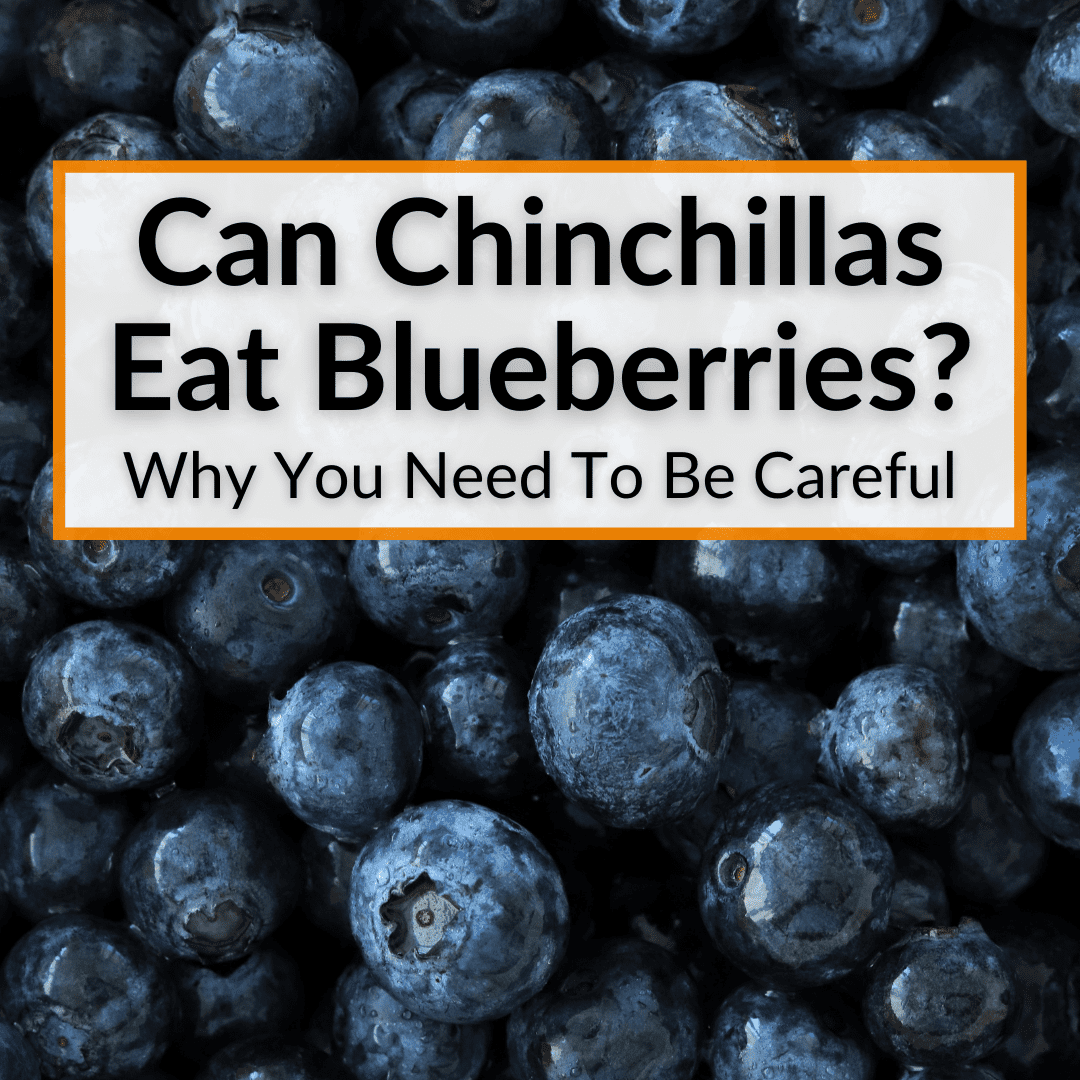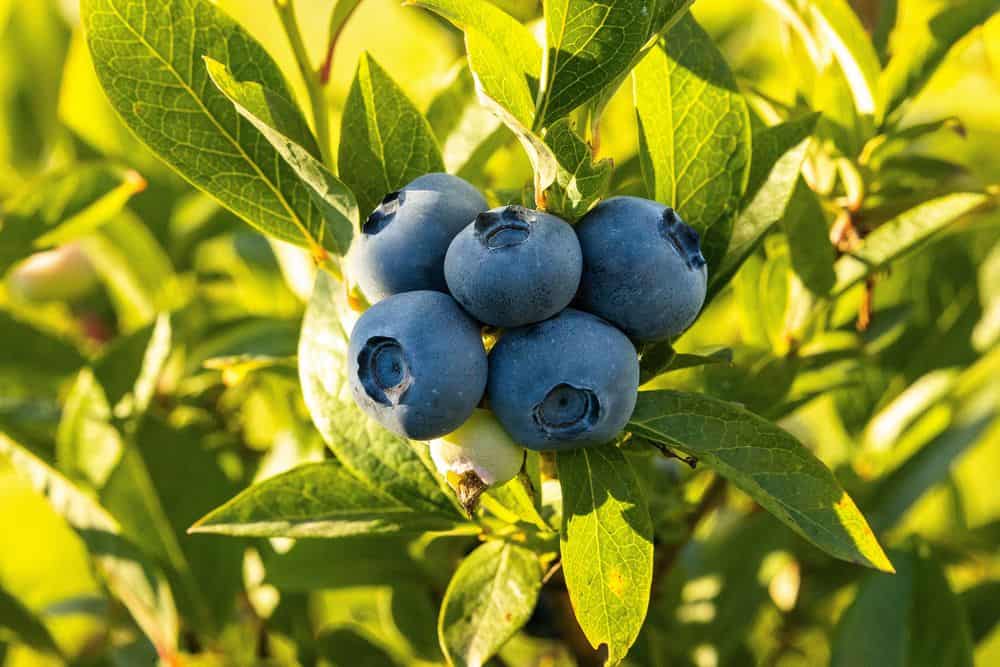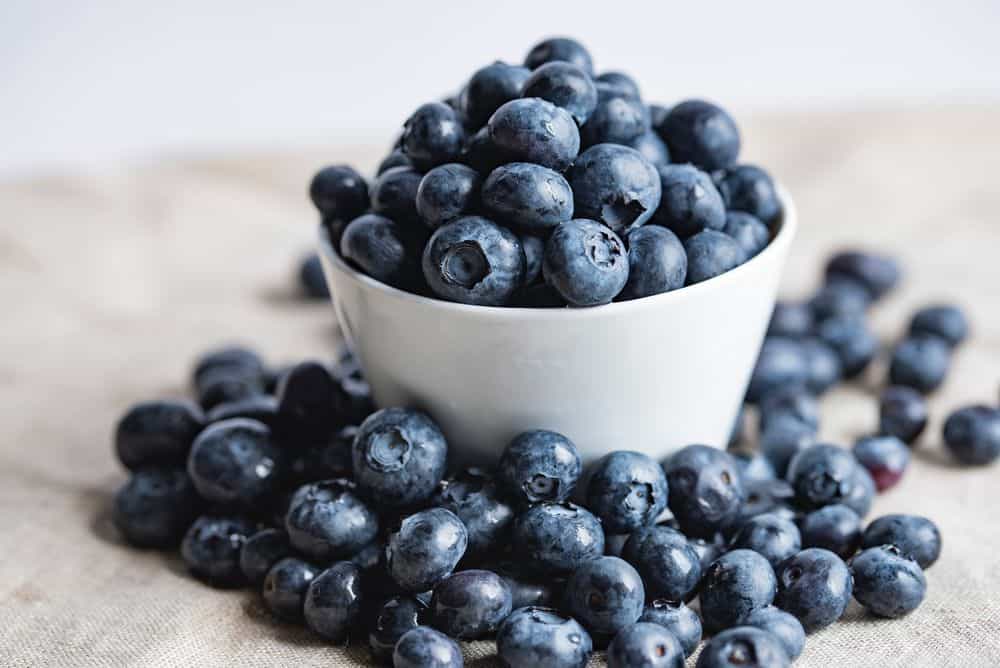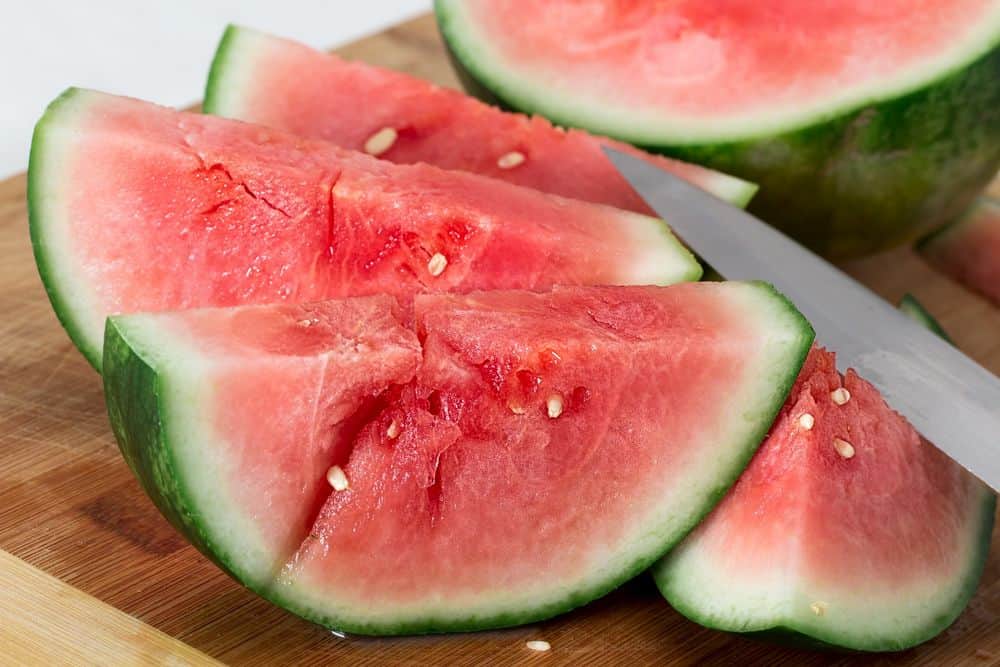
Hay and pellets are all they need.
But many of us like to give our pets the occasional tasty treat.
I know I love watching my chin tuck into a delicious little morsel.
The problem is that there are so many foods that are bad for them. Including many we see as healthy.
Fruits can be especially problematic. Can chinchillas eat blueberries or are they just another healthy fruit that is not so healthy for these sensitive little rodents?
Keep reading to learn everything you need to know about feeding your chinchilla blueberries.
Contents
Can Chinchillas Eat Blueberries?
Yes, chinchillas can eat blueberries. But only in limited quantities. You should only feed your chinchilla blueberries as a treat, and no more than twice a week.
That may seem counterintuitive, since blueberries are so healthy for us. Let’s find out why blueberries can be a problem for chinchillas, despite being an incredibly healthy fruit for us humans.
The Problem With Blueberries For Chinchillas

Blueberries are commonly referred to as a superfood, because they are jam-packed with vitamins and antioxidants. While these are beneficial to us as well as chinchillas, blueberries also contain a lot of sugar and water.
Both of those are a big problem for chinchillas. A large amount of sugar and water can wreak havoc on your chinchilla’s digestive system. And with such a small animal, a “large” amount is not very large at all. More than a single blueberry once or twice a week is already too much.
Chinchillas only need a small amount of water. Too much can cause them to bloat. If they cannot pass this gas, this can lead to the lining of the stomach or intestine rupturing, which would require emergency medical care.
If a chinchilla eats too much sugar, it can also lead to bloating, as well as other problems, like diarrhoea, sickness and stomach pain. A long-term effect of too much sugar is obesity. With that come many more health concerns, such as heart conditions or diabetes.
Ideal Chinchilla Diet
A healthy diet for a chinchilla is pretty basic. It mainly consists of hay and pellets, along with a couple of treats throughout the week, such as a small amount of fruit, veg or dried herbs and flower petals.
The main component of a chinchilla’s diet should always be hay. You can feed this to them in the natural form of hay, and in the form of pellets, which have been created from hay.
Give your pet some pellets once or twice a day and a steady supply of hay throughout the day. Just keep the hay feeder full, so your chin can graze whenever it wants. This diet ensures your pet gets all the nutrients it needs.
Both pellets and hay are available to buy from your local pet store. You can also get them online, from pet stores or Amazon. This article covers the best hay and pellets for chinchillas.
If you want to add blueberries to your chinchilla’s diet, do not add them as a main source of food. They should never be more than an occasional treat. Just one blueberry one or two times a week is more than enough to give your chinchilla a sweet treat and add a little variety to its diet.

What Else Can I Feed My Chinchilla?
Along with your chinchilla’s main diet of hay or pellets, there are other tasty treats you can feed it to add some variation to its diet. However, if you feed your chinchilla other treats, do so in instead of blueberries and not in addition to them.
Up to 10% of a chinchilla’s diet can consist of treats, in addition to the pellets and hay. Leafy greens and certain other vegetables can be good additions. Great options to feed your chinchilla include watercress, dill, collard greens, bib lettuce, red leaf lettuce and mustard greens.
Other fruit options that your chinchilla will love include apples, pears, strawberries and peaches. You can even give your chinchilla dried fruit, such as raisins or dried cranberries. Can chinchillas eat cranberries when they are fresh? They are actually quite similar to blueberries.
Of course, you should only give your chinchilla a small amount of fruit. Make sure you feed it no more than the size of your pinky fingernail. In the case of raisins, make it just one small raisin. Again, this is due to the sugar content an, for fresh fruit, the water content.
What Fruit Can Chinchillas Not Eat?

You should avoid feeding your chinchilla fruits with an especially high water content, like watermelon. This fruits is high in both water and sugar, so even a small amount of them could cause a variety of stomach and digestive issues.
Can chinchillas eat watermelon, if it is just a tiny amount? Yes, but it is best not to risk it. Even a small piece of melon can make your pet sick.
You should also avoid citrus fruits. They have high acidic levels and a large number of fatty acids which your chinchilla will also struggle to digest. Make sure you do not feed your chin any foods like oranges, lemons or grapefruits.
The high levels of acid could also cause stomach pains and sickness in your chinchilla. If you can, it’s always best to stick to small amounts of dried fruit, especially if you want a happy and healthy chinchilla.
Can chinchillas eat blackberries or other berries? They can, but only in small amounts. All berries are basically in the same boat: they contain too much sugar and water.
Can Chinchillas Have Blueberries: Final Thoughts
Chinchillas can eat blueberries, but only as an occasional treat. A single blueberry once or twice a week should eb fine. Avoid feeding more than that.
Like so many other fruits, blueberries simply contain too much water and sugar. Both can wreak havoc on the chinchilla’s delicate digestive system.
Leave a Reply